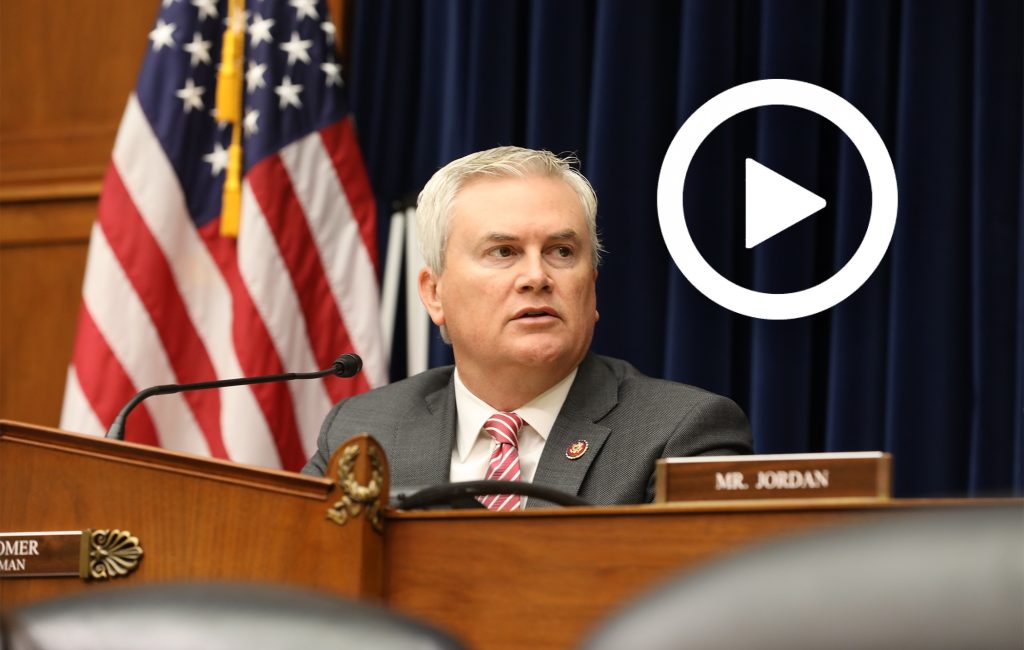Comer: This Committee Must Fulfill its Responsibility to Conduct Oversight of the District of Columbia
Opens hearing by emphasizing that our nation’s capital has deteriorated and declined.
WASHINGTON – Today, House Committee on Oversight and Accountability Chairman James Comer (R-Ky.) delivered opening remarks at a full committee hearing titled “Overdue Oversight of the Capital City: Part 1.” In his opening statement, Chairman Comer emphasized that the District of Columbia has suffered from rising crime, plummeting education levels, and a city budget in complete disarray. He highlighted that total property crime is up 28 percent, homicides are up 37 percent since 2019, D.C. is ranked fourth-from-last in high school graduation rates, over 40 percent of students decline to seek advanced education, and the city pushes expensive progressive programs it cannot afford. He stressed that D.C. officials have failed their basic responsibility to keep Americans safe, spur local economic development, and provide good educational opportunities. He concluded by stating that the committee will continue to conduct oversight of the nation’s capital to ensure the city is a safe and prosperous city for generations to come.
Below are Chairman Comer’s remarks as prepared for delivery.
For the first time since 2019, this Committee is holding an oversight hearing examining the District of Columbia.
Since that time, our nation’s capital has deteriorated and declined.
Crime has risen dramatically.
Education levels have plummeted.
And the city’s finances are in disarray.
D.C.’s officials have failed in their responsibility to keep safe its citizens and visitors and provide economic and educational opportunities for them.
Therefore, our committee must fulfill its responsibility to conduct oversight of the District of Columbia.
We have a tall task today examining D.C.’s failings.
The crime statistics alone are shocking.
According to the D.C. Metropolitan Police Department, carjackings in the District have increased by 105 percent compared to this time last year.
Fifty-six percent of these carjackings are committed by juveniles.
Total property crime is up 28 percent.
Homicides are up thirty-seven percent since 2019.
Just days ago, 14 men were shot in 10 separate incidents within a 27-hour span in Washington, D.C.
D.C. clearly has a crime crisis.
The D.C. Council saw these rising crime trends. But rather than support policies to protect their residents, it did the opposite.
On November 15, 2022, the D.C. Council passed the Revised Criminal Code Act of 2022.
It contained several soft-on-crime measures that would escalate D.C.’s crime.
The Revised Criminal Code Act eliminated almost all mandatory minimum sentencing requirements for violent crimes.
And it drastically reduces the maximum penalties for many violent crimes.
These and other changes further embolden criminals to run rampant throughout the Nation’s Capital.
Mayor Muriel Bowser vetoed this legislation last December.
Yet the Council persisted in pushing its soft-on-crime agenda and voted to override Mayor Bowser’s veto.
Thankfully, my friend from Georgia, Mr. Clyde, introduced the House Joint Resolution 26 of Disapproval. This resolution rejects the D.C.’s Council Revised Criminal Code Act.
Some blasted this effort as a partisan attack on the District—including many of my Democrat colleagues in this room.
But this resolution passed Congress under bipartisan support and was signed by the President earlier this month on March 20th.
Hopefully, D.C. officials took notice and are reconsidering its soft-on-crime approach.
Today, we are fortunate to have two witnesses from the D.C. Council to answer how they plan to move forward in reducing the crime plaguing our capital.
The Council must work with our men and women in uniform to craft legislation and policies that support the Metropolitan Police Department in thoughtful ways to ensure public safety.
The Council also needs to focus on the District’s children who have been placed last in priority the past few years.
Forced school shutdowns during the pandemic led to huge drops in math and language scores for students across all grades.
This has also led to record-level truancy. In 2022, 48 percent of D.C. students qualified as chronically absent. Almost half of D.C. students are not consistently going to school.
And now, D.C.’s students’ long-term prospects are sinking. Experts are projecting an over 40 percent decline in students seeking advanced education after high school.
In 2022, D.C. ranked fourth-from-last in high school graduation rates among U.S. cities.
Something needs to be done to turn this around. I hope to hear some solutions today.
The District must also take steps to address financial concerns outlined by one of today’s witnesses, Chief Financial Officer Glen Lee.
In his February 28th report, Mr. Lee determined that D.C. is in a weaker financial position in 2023 than it was in 2022.
Some of those reasons include the loss of tax revenue from commercial properties and expanded telework.
It seems the D.C. Council wants to ignore this poor fiscal outlook and is pushing expensive progressive policies and programs.
One of these programs is free busing.
But free busing is not free. Taxpayers still have to pay for it. And unfortunately, D.C. is losing taxpayers as businesses and residents are fleeing at a record pace.
D.C. must prioritize policies that promote economic growth—not find ways to spend money it doesn’t have.
I look forward to hearing from our witnesses about ways that D.C. intends to spur business growth and keep residents.
One idea is simply protecting your residents and small business owners. That will go a long way in promoting economic growth.
This Congress, this Committee has and will continue to conduct oversight of the District of Columbia.
We must for its residents, our constituents who visit from across the country, and those who work in this city. They all deserve a safe and prosperous city.
I look forward to working with my colleagues and District leaders to achieve that ideal.
I now recognize Ranking Member Raskin for his opening remarks.
